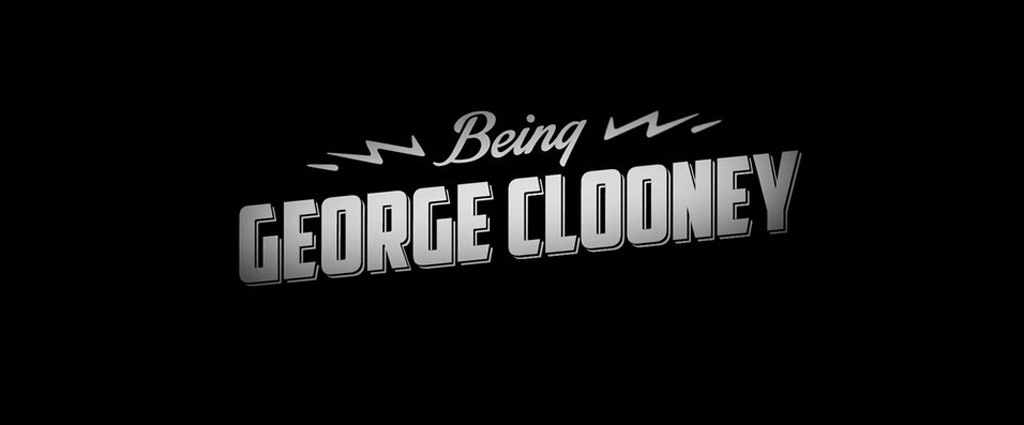Since late 2012, Paul Mariano made it his mission to meet George Clooney. All of them.
“We started doing some investigation and found the Turkish George Clooney and the Indian George Clooney and the French George Clooney and the Spanish and the German and the Brazilian and what we found was not only were these people available and willing to be in the movie, but they had these incredibly disparate backgrounds,” says Mariano, who was inspired by a magazine article to track down the men who lend their voice to George Clooney when the actor’s films are dubbed into other languages around the world.
“The Brazilian George Clooney is an ER doctor. How convenient is that when George Clooney was in the TV show of ‘ER’?” Mariano marvels. “One of the George Clooneys writes children’s books. The Japanese George Clooney studied to be a lawyer and decided he didn’t like it. Many of them are actors in their own right, so the idea that these very different people all do the same thing, which is to be the voice of George Clooney in their country, is fascinating.”
And no two filmmakers are better suited to tell their story than Mariano and his producing partner Kurt Norton, who have specialized in shining a light on the nooks and crannies of the film business. After allowing people to see the remarkable work of the National Film Registry to preserve cinema history in their last film “These Amazing Shadows,” the two are hoping people will open up their ears to a largely neglected yet important part of spreading movie culture across the globe with “Being George Clooney.”
“What caught our attention with [“These Amazing Shadows”] was the statistic that that 50% of all movies made before 1950 no longer exist and 90% made during the sound era before 1920 are gone,” says Mariano. “It’s something that most film lovers, filmgoers and cinephiles don’t know, so this whole area of audio dubbing was something that fascinated us as well because so little is known about it and why we’re going down this road here.”
The filmmakers have logged a considerable amount of miles down that road, making their way across Europe in 2013. Yet they need to travel many more, which is why they’ve turned to Kickstarter to raise funds before a March 17th deadline. With additional support, “Being George Clooney” will fulfill its ambition to be a definitive history of sound dubbing, venturing to such far-flung locales as Tokyo and Mumbai to explore both the personalities of those who do the dubbing and how their vocal interpretation can change how a film is perceived in other cultures.
Already, Mariano and Norton have uncovered quite an incredible story, going all the way back to the 1930s when dubbing was first introduced by the Italians under the Mussolini regime as a way to bring Hollywood films into the country without the language of its future WWII rival. Since then, it has grown into a crucial part of Hollywood’s business model as the international marketplace has exploded, though the position of the dubber has become more anonymous than ever.
“It’s a business that has changed in the last 10 or 15 years dramatically,” says Mariano. “ The dubbing actors [used to] come into the studio all together and they would play off of one another. Today, for the vast, vast majority of films, the actor comes in alone and it’s a matter of both economics and studio privacy. [The actors] have not been given a script, they don’t even know what the name of the movie is or the character. One woman in Germany was telling me the story of how she was doing the character of Jada Pinkett Smith in ‘The Matrix Reloaded’ and she didn’t know what the story was about and up on the screen was totally black and then a small section of it would open up so all you could see was Jada Pinkett Smith’s mouth.”
If Mariano and Norton accomplish what they hope, the names of Francesco Pannofino and Tamer Karadagli, the George Clooneys of Italy and Turkey, respectively, will be just as famous as the actor they dub. Then again, as Mariano has learned, these men have forged deep emotional connections with their audience already.
“In Germany, a gentleman named Detlef Bierstedt had been George Clooney from the time he was in ‘ER’ up until he made ‘Ocean’s Eleven,’ and Steven Soderbergh, for whatever reason, wanted there to be a different voice, so he hired this gentleman named Martin Umbach, did all the ‘Ocean’s’ and ‘Syriana,’” recalls Mariano. “In [our] trailer, Umbach says it must’ve been strange for Germans who are accustomed to one voice, all of a sudden, hearing another voice come out of George Clooney’s face. And it really is. Imagine Clint Eastwood, for example, opens his mouth and your voice or my voice comes out. People in these countries really fall in love with a particular person’s voice, so it’s interesting how poorly they’re treated in spite of how important they are to the integrity and character to the film.”
In showing the rich history behind their work, “Being George Clooney” will undoubtedly raise the appreciation of voice dubbers everywhere, so long as the crowd is able to raise the funds to make it happen.
To back this project or watch the filmmaker’s personal pitch video, click here. And follow the film’s progress on its official site, Facebook and Twitter.




